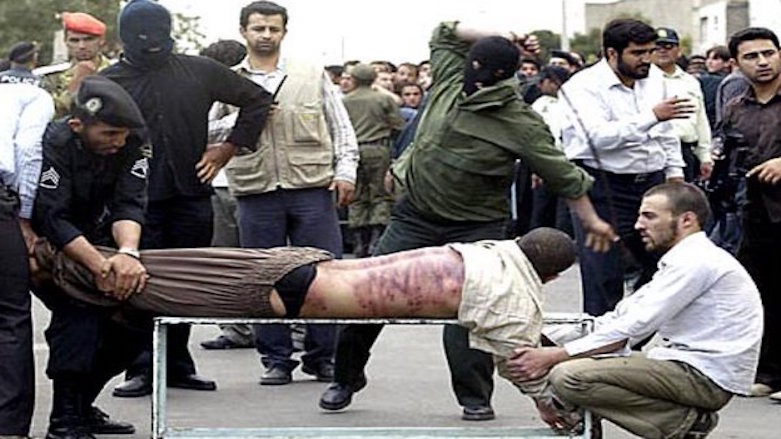Iran sentences Kurdish woman to 50 lashes for pro-referendum rally

ERBIL, Kurdistan Region (Kurdistan 24) - Kurdish woman in Iran arrested in September for attending pro-referendum rallies was sentenced to 50 lashes, local media reported on Monday.
Saqiz court in Kurdistan Province, Iranian Kurdistan (Rojhelat), charged Zamaneh Zeiwy with "disturbing public order" and sentenced her to flogging because of her public support of the Kurdistan Region vote on independence from Iraq.
The Revolutionary Court of the Islamic Republic of Iran is expected to announce additional charges for the Kurdish woman accused of threatening social order, Kurdistan Human Rights Association (KMMK) reported.
After Kurds voted overwhelmingly in favor of secession from Iraq, Iranian Kurds celebrated on the streets.
The cities of Sanandaj (Sina), Baneh, Mariwan, Mahabad, and others in the Kurdish region saw a large group of people dancing and honking on the streets, despite risks involved.
In response, Iran immediately militarized the cities and detained dozens of civil rights activists whose destiny remains uncertain.
"It's extreme suppressions like these that push Kurds towards seeking independence," activist Jina Alavi told Kurdistan 24.
Hundreds are routinely flogged in Iran each year, sometimes in public.
Despite a century of living across different borders, tragedies and victories in one part of the ancient Kurdish land continue to affect the rest.
Iran’s persistent use of cruel and inhuman punishments, including floggings, amputations and forced blinding over the past year, exposes the authorities’ utterly brutal sense of justice, said Amnesty International.
“The authorities’ prolific use of corporal punishment, including flogging, amputation and blinding, throughout 2016 highlights the inhumanity of a justice system that legalizes brutality," said Randa Habib, Amnesty International’s Regional Director for the Middle East and North Africa.
"These cruel and inhuman punishments are a shocking assault on human dignity and violate the absolute international prohibition on torture and other ill-treatment,” Habib added.
